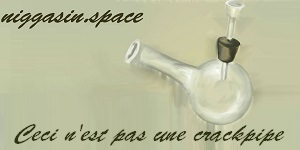

User Controls
Bit rot
-
2018-03-19 at 8:42 PM UTCI tested CDs, to see how long they could hold their data. After fully verifying their checksums, I put some test disks away in a temperate-controlled environment, with no light sources at all, then took them out 15 years later. Several of the CDs had developed bad checksums, just sitting there, unused and undisturbed.
-
2018-03-19 at 8:46 PM UTC
Originally posted by -SpectraL I tested CDs, to see how long they could hold their data. After fully verifying their checksums, I put some test disks away in a temperate-controlled environment, with no light sources at all, then took them out 15 years later. Several of the CDs had developed bad checksums, just sitting there, unused and undisturbed.
What kind of CD. -
2018-03-19 at 8:48 PM UTC
-
2018-03-20 at 1:10 AM UTC
Originally posted by -SpectraL If you want to avoid data rot 100%, take the data you want to preserve and compress it into segmented .rar files, then use a program called PAR to make data recovery block files. No matter how corrupted the archived set gets, PAR can reconstruct the data.
http://www.quickpar.org.uk/AboutPAR2.htm
I'm going to be charitable here speckles and assume you're trolling instead of actually being this stupid. Please don't troll in the technical forums, this kind of idiocy is how urban legends start. If you really are this ignorant than go read a book or something instead of smearing your ignorance on others.
Originally posted by Zigzagoon This is crazy, didn't know this was even a thing.
So how would one store data for a long period of time like hundreds of years?
Optical storage like CDs or DVDs are generally considered one of the longest live storage media under ideal conditions. Normal atmospheric radiation is never strong enough to flip a bit, and the materials involved have an indeterminate span of time before chemical decay happens. But then a redundant HDD array you can can keep powered/maintained is probably more practical and extremely fault tolerant. But then with error correction and assuming you keep your single drive powered that link I posted earlier figures it would be billions of years before it's likely an uncorrectable error will occur. -
2018-03-20 at 3:23 AM UTC
Originally posted by Zigzagoon This is crazy, didn't know this was even a thing.
So how would one store data for a long period of time like hundreds of years?
For hundreds of years, ink on acid-free paper is the only thing we know will last that long. Tape drives in a controlled environment have lasted a few decades and archival grade DVDs are probably good for a while too. -
2018-03-20 at 3:52 AM UTC
Originally posted by Fox Paws I’ve actually found that if you mount your HDD at a 45 degree angle, data corruption due to bit rot is essentially zero. This is because cosmic rays will bounce right off, rather than if they hit straight on
therefore if you mount it vertically at 0 degree, the chances are in the negatives since the surface area exposed to cosmic rays are from above is just a few mm square for a 3.5inch HDD and lesser than a square mm for a 2.5inch HDD. -
2018-03-20 at 3:57 AM UTC
Originally posted by Fox Paws I think I read the most stable form of long term data storage is on CD. You couldn’t just use any optical disc though, you need to use the ones made of polycarbonate or some shit.
NO, CDs are unreliable.
this is becos the data layer, the metallic aluminum sputtered onto the disk is on the outside, on the other side of the read side, protected by a layer or two of paint.
eventually the data layer strips off like old paints.
DVD is better, the data layer is actually in the middle of 2 pieces polycarbonates, protected on both sides.
and all optical disks are made of polycarbonates. -
2018-03-20 at 4 AM UTC
Originally posted by inb4l0pht For hundreds of years, ink on acid-free paper is the only thing we know will last that long. Tape drives in a controlled environment have lasted a few decades and archival grade DVDs are probably good for a while too.
ink on acid free paper ???
are you forgetting how the 10 commandments and egyptians archive their datas ??? -
2018-03-25 at 8:35 AM UTCWhat about if your drives are in a Raid 5 configuration? wouldnt the OS see the discrepancy and either correct it or notify you? that being said I've experienced bit rot many times but I think that was before I was using Raid
-
2018-03-25 at 9:04 AM UTC
Originally posted by xy0 What about if your drives are in a Raid 5 configuration? wouldnt the OS see the discrepancy and either correct it or notify you? that being said I've experienced bit rot many times but I think that was before I was using Raid
Both RAID and the FS running on top of it (or on a single disk setup) contains enough redundant information that it's very unlikely you've experienced dataloss as a result of bit rot. Note that mechanical hard drive failure or damage from something like sudden acceleration is not the same as bitrot.